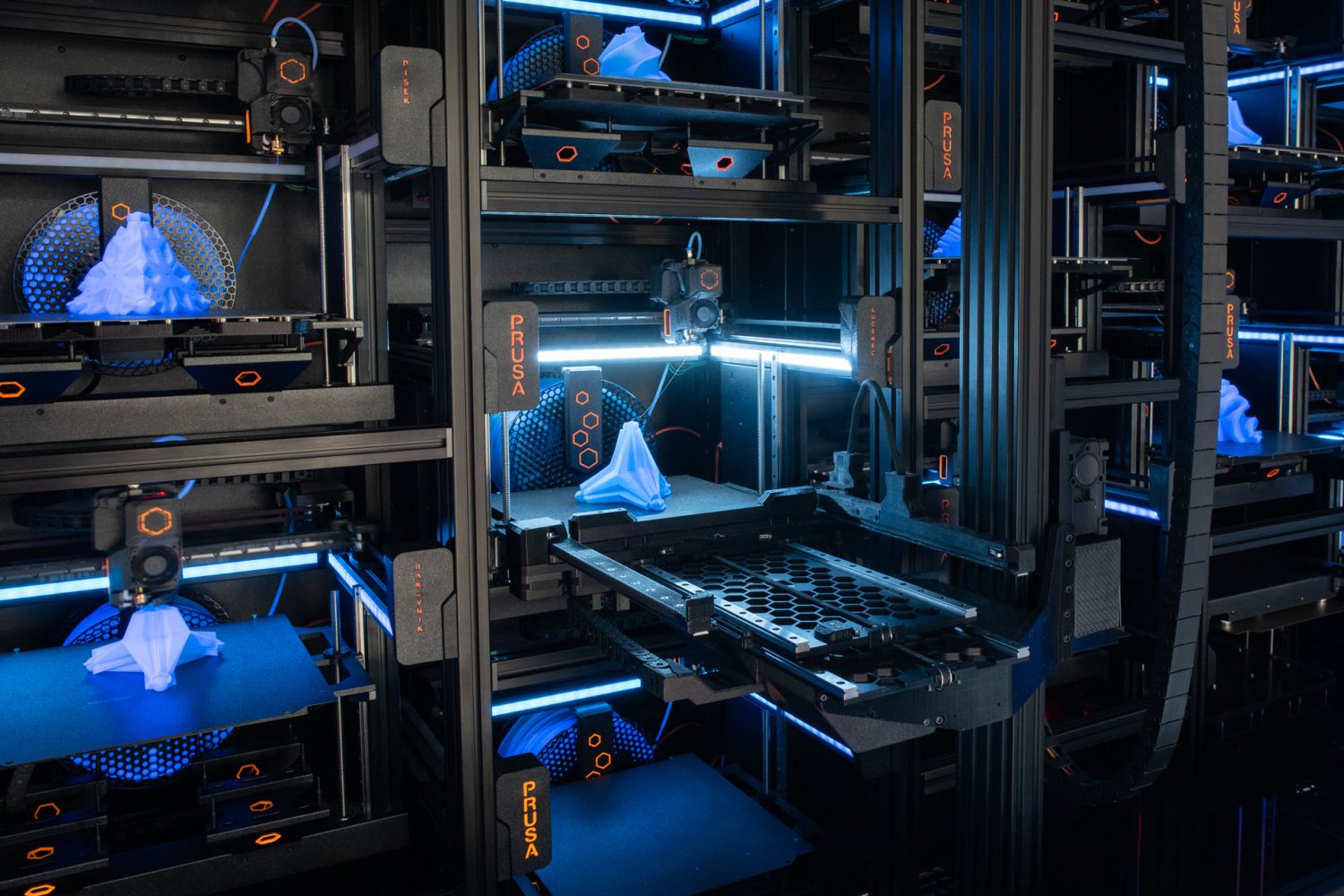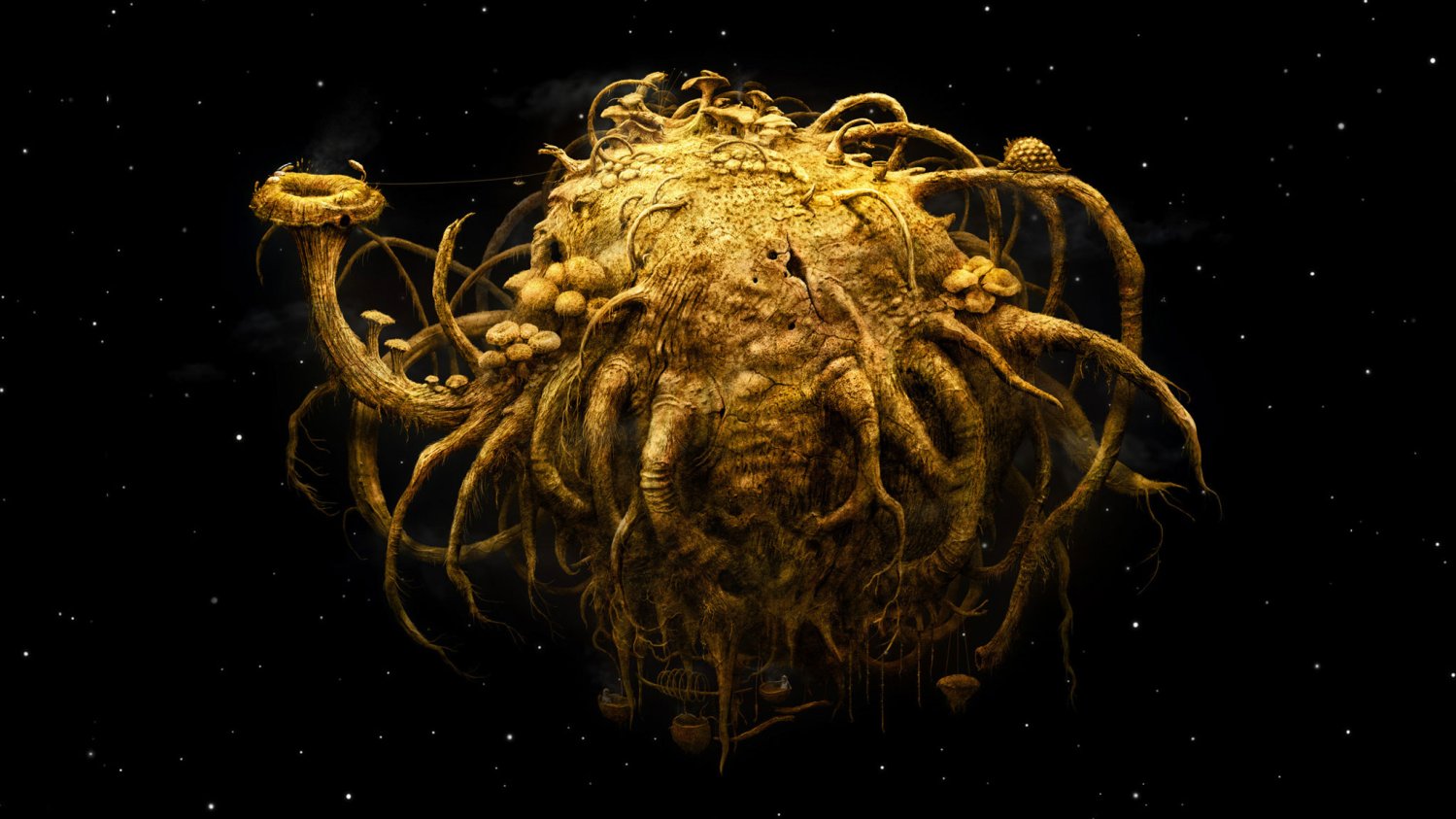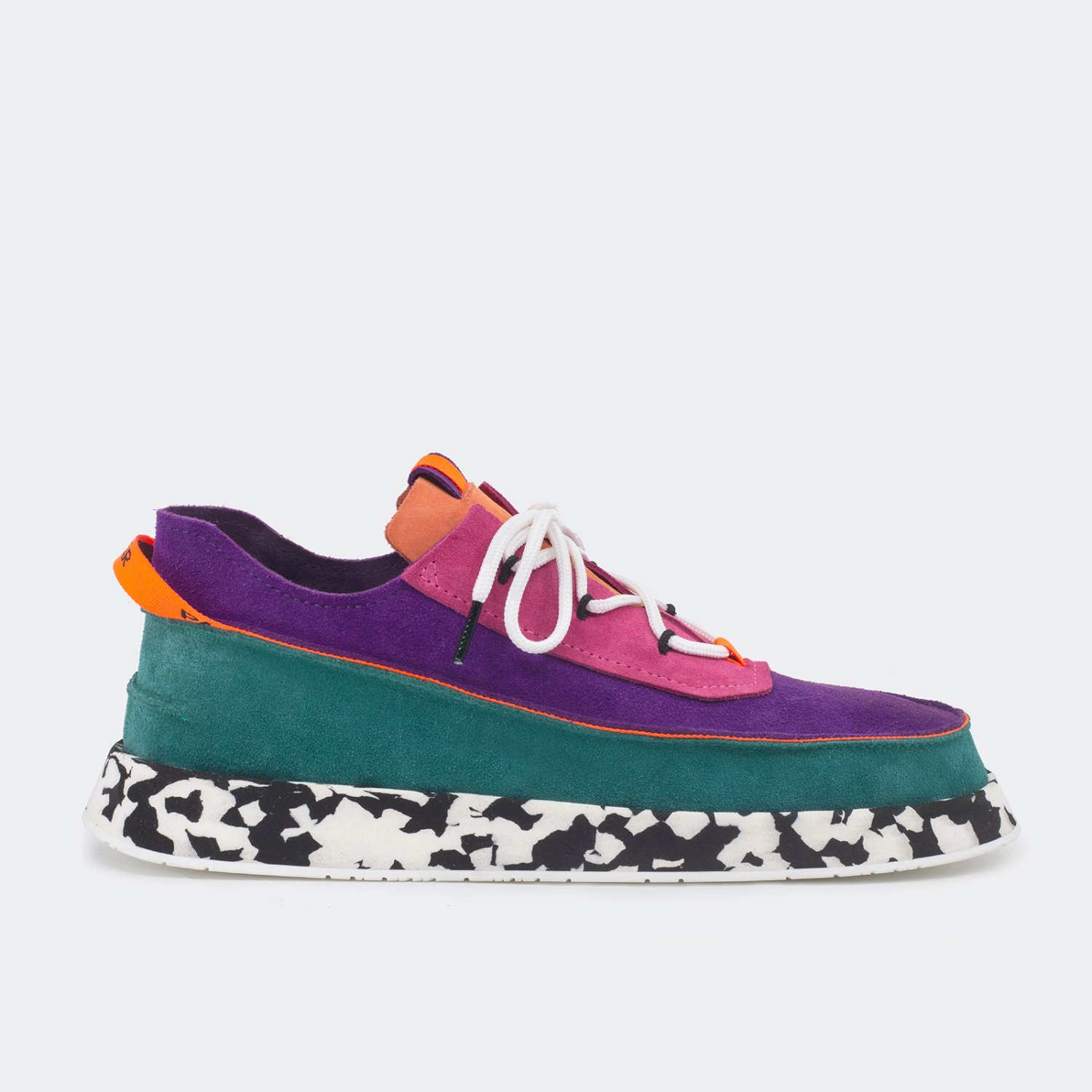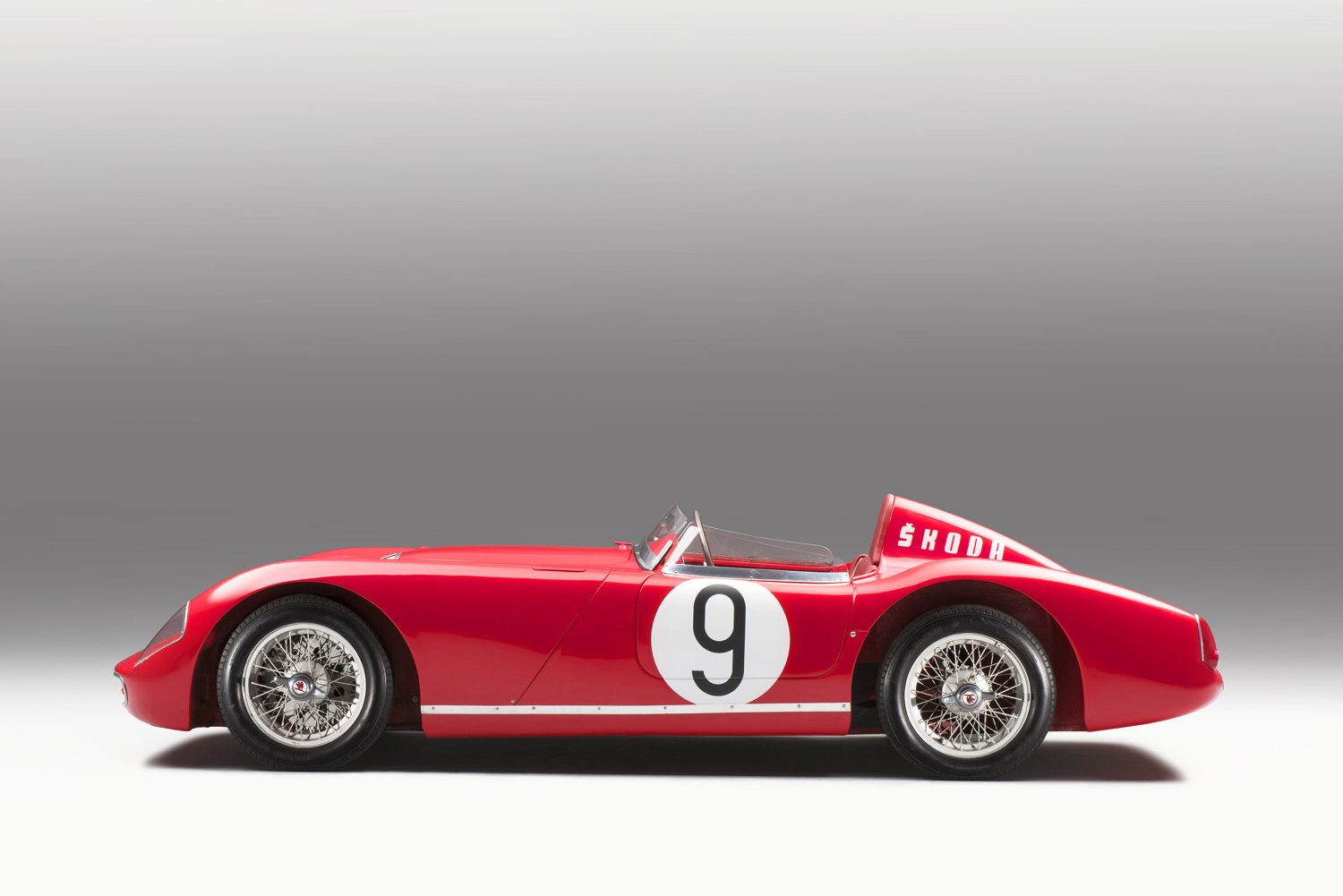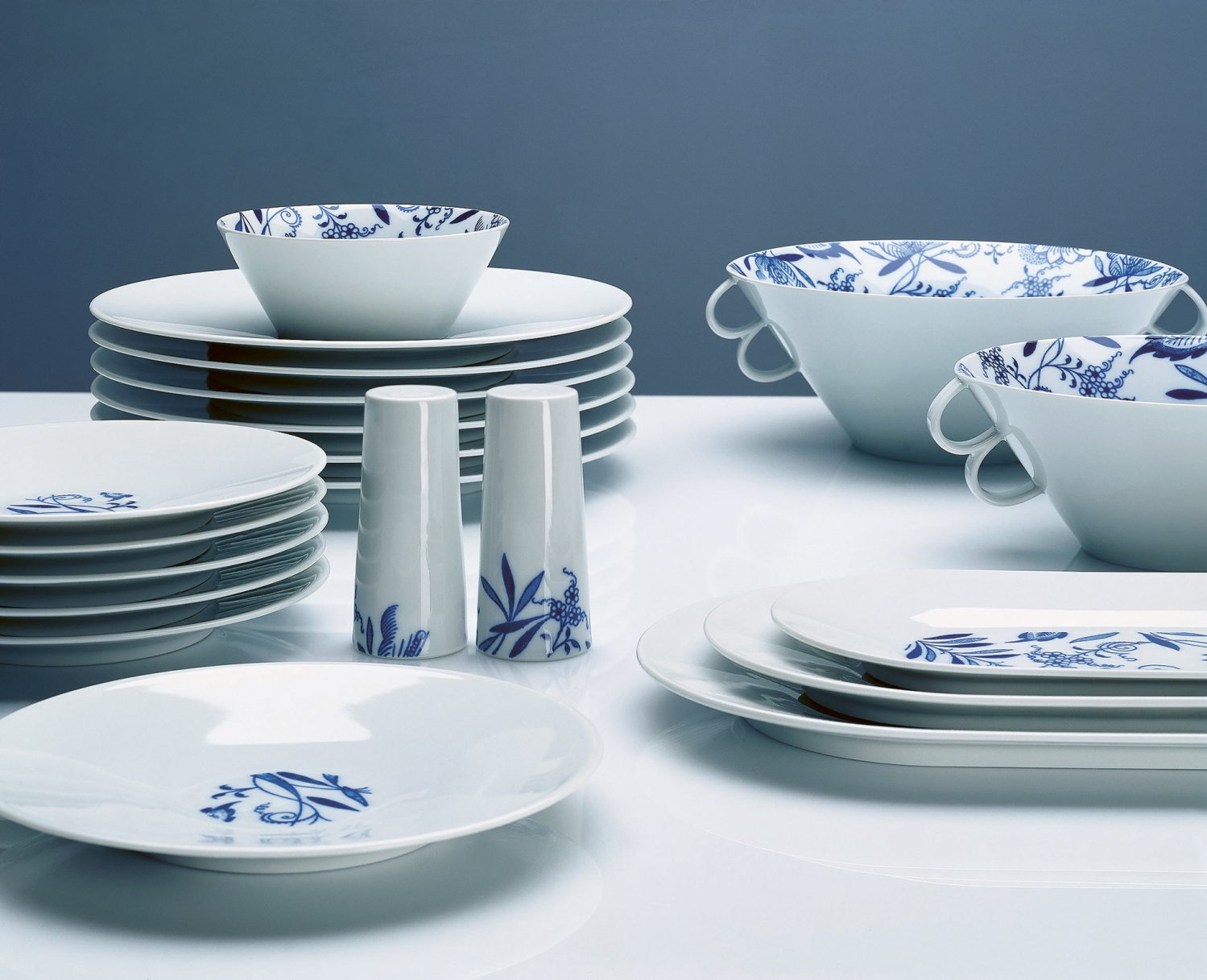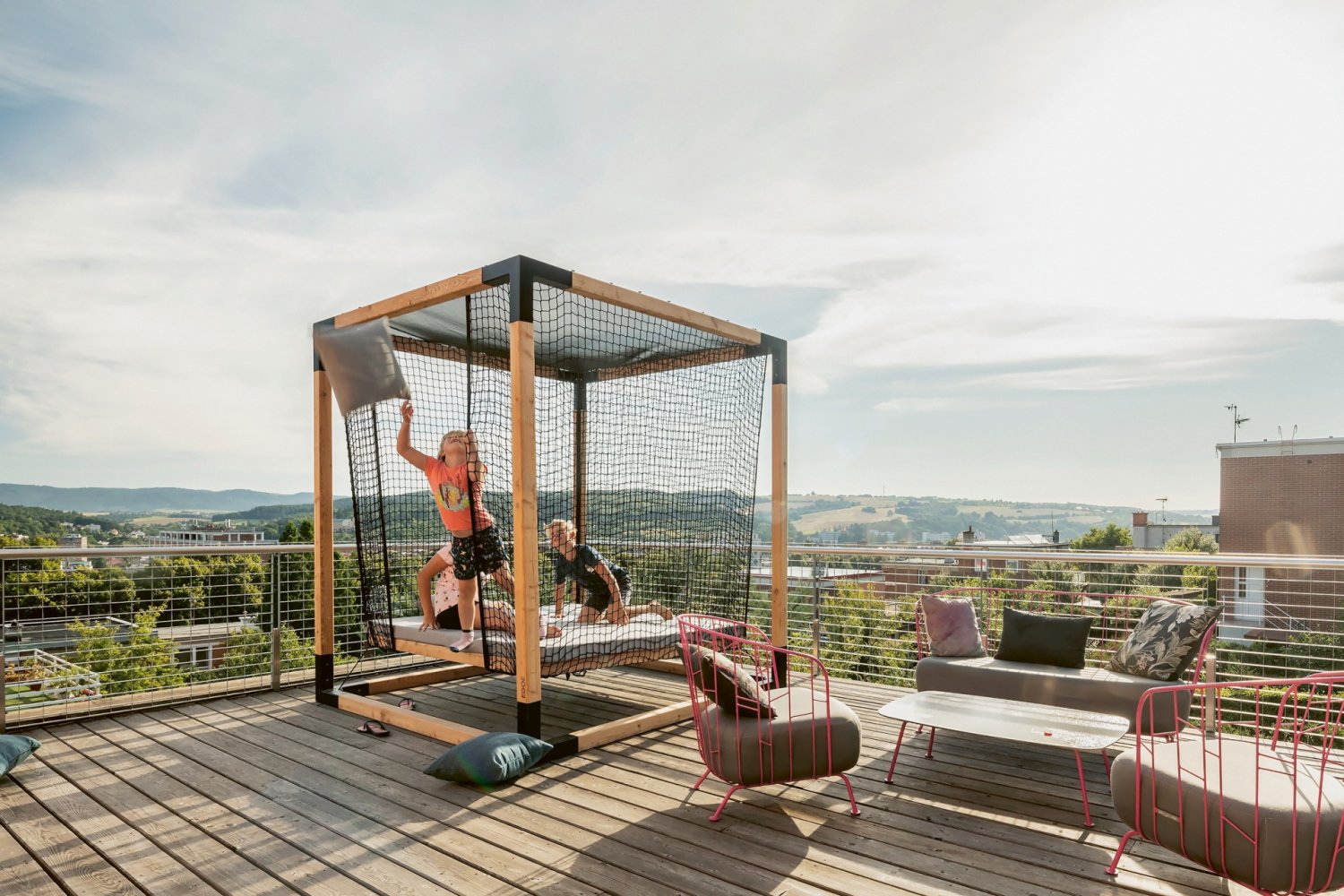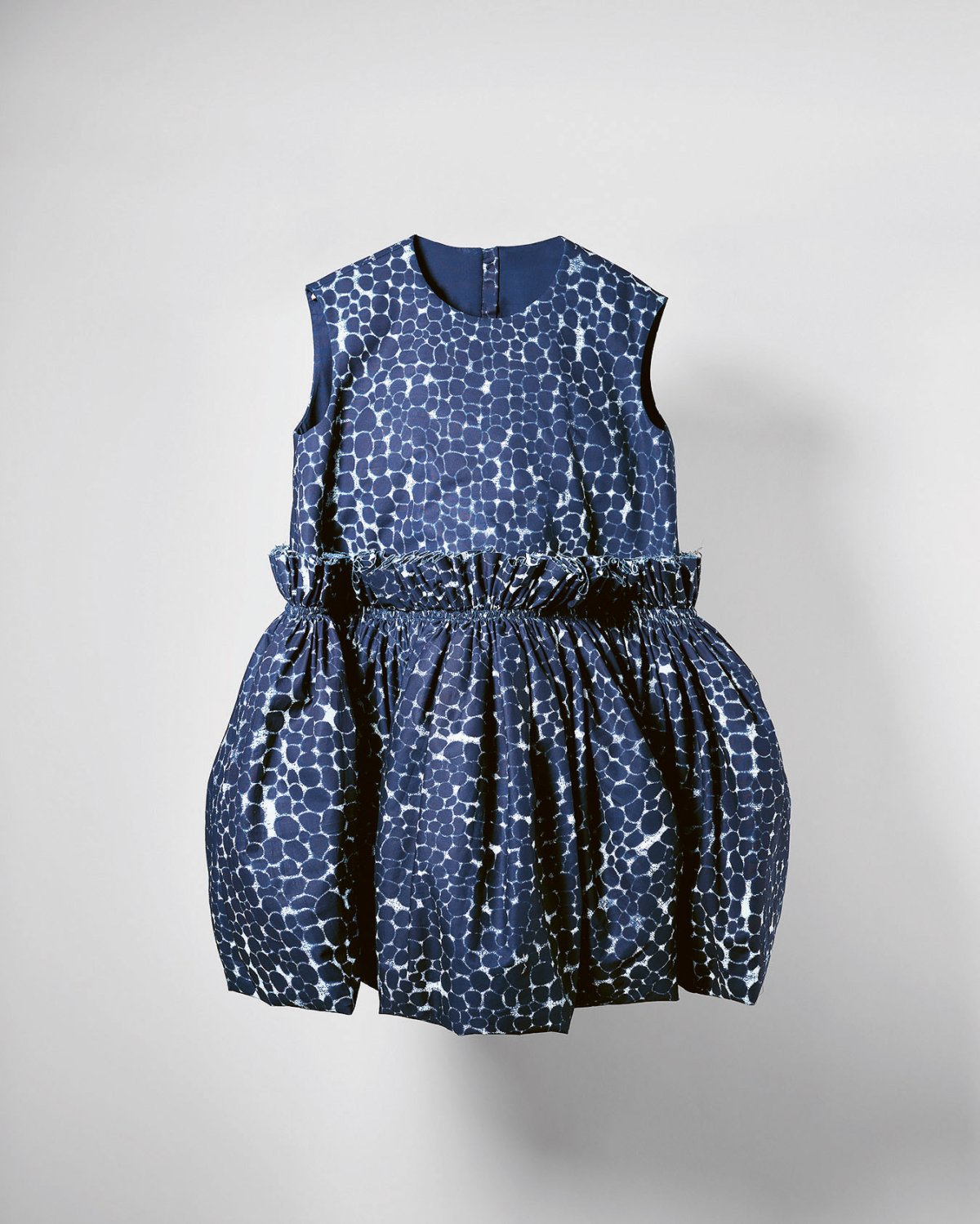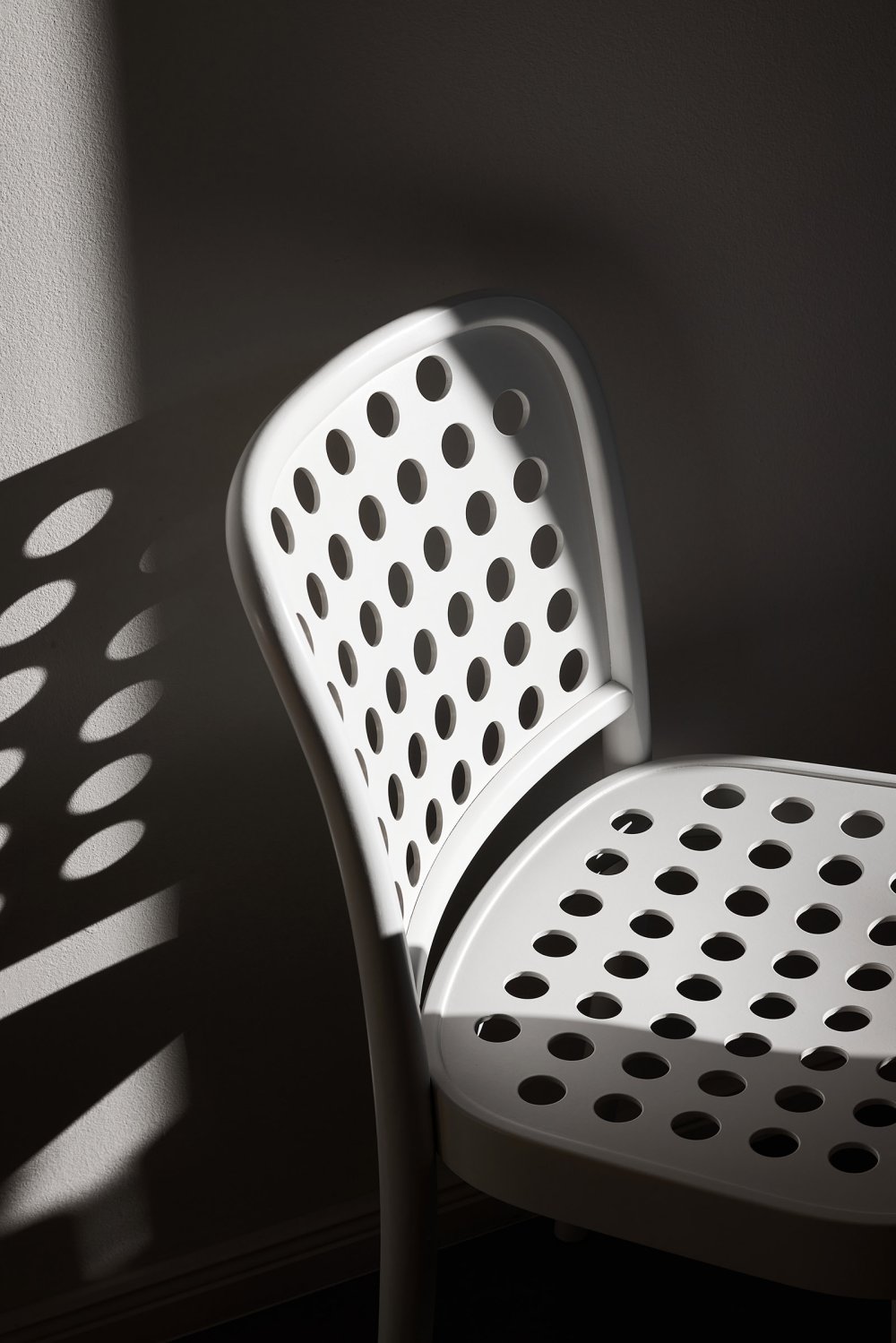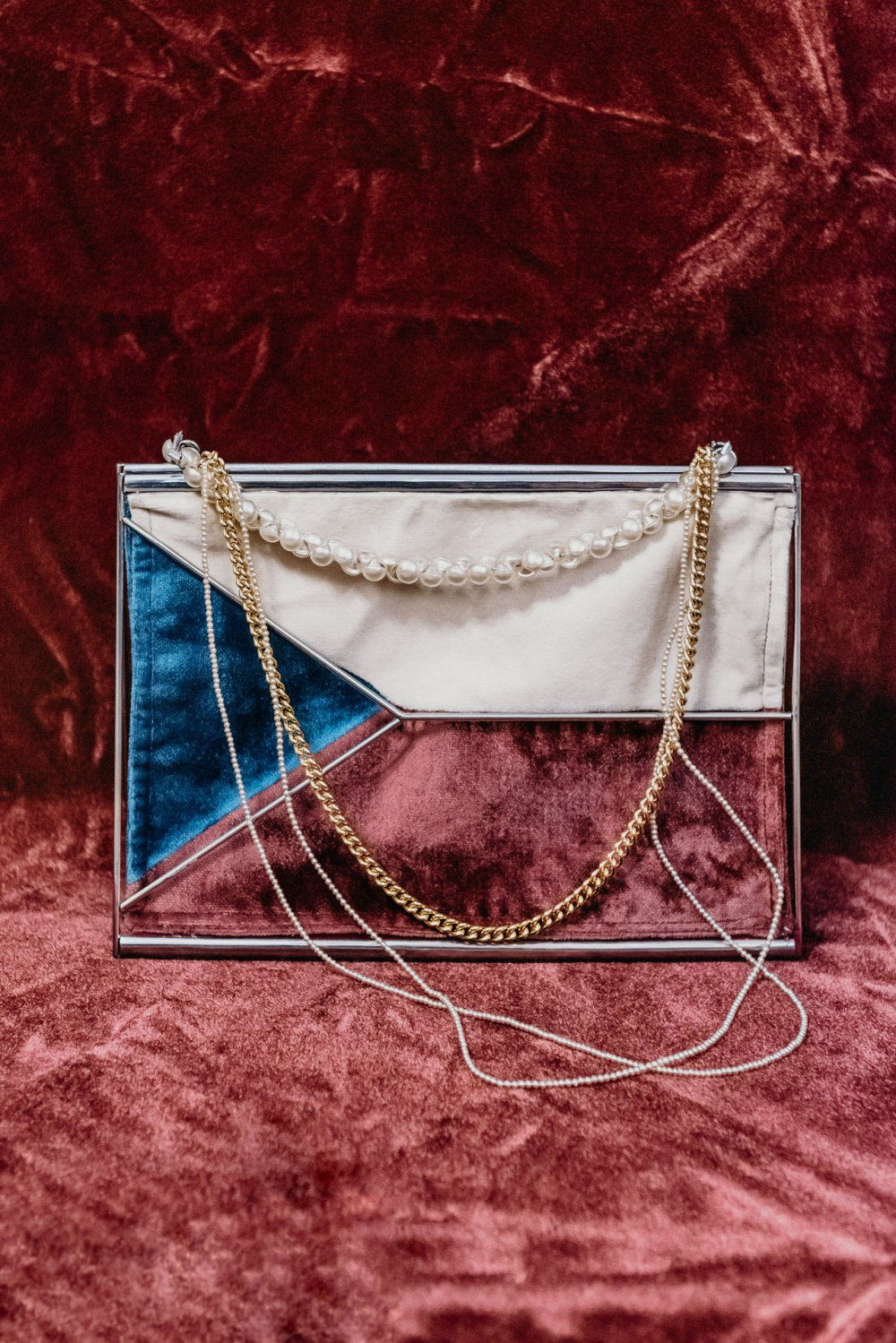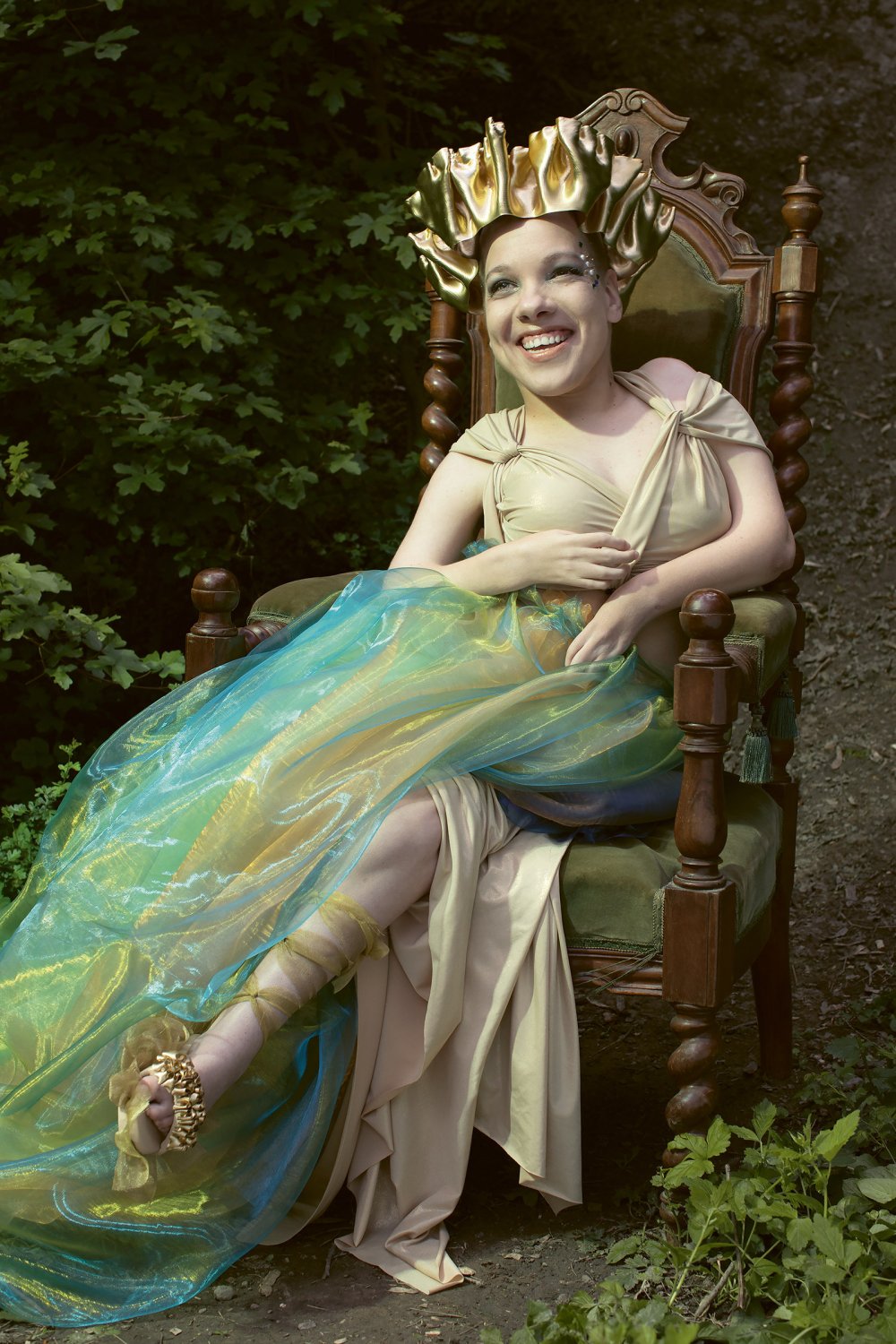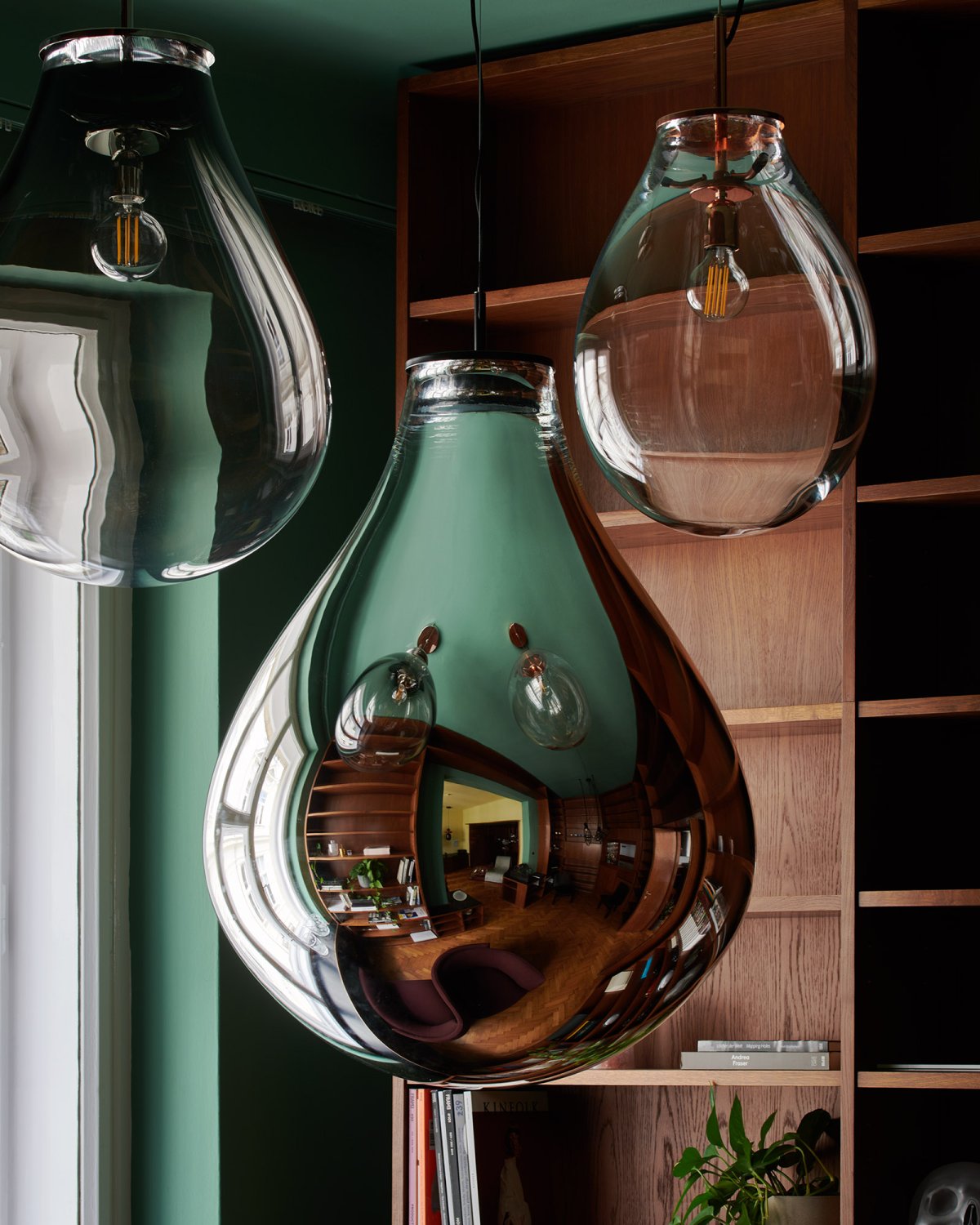Amanita design
Amanita design is proof that the Czech video game industry is on the rise. The brand, founded by Jakub Dvorský, a graduate of the Film and Television Graphics Studio at UMPRUM, is known for its visually sophisticated animations inspired by nature (Samorost and Botanicula), technology (Machinarium and Creaks) and psychedelia (Chuchel and Happy Game), precisely thought-out game stories, as well as for its exceptionally creative music component. One of the pillars of the brand is the emphasis on quality, which is why Amanita Design typically does not announce in advance dates when it will launch its games. The team has been working on individual pieces for several years to the complete satisfaction of all the creators involved. The studio is currently working on the new game Phonopolis.
Bomma
Bomma, one of the leading companies focused on working with glass, works with leading designers and produces crystal lighting fixtures that balance on the edge of what is humanly and technologically possible. Combining creativity with precise workmanship thus represents a remarkable symbiosis between modern technology and traditional craftsmanship. During its existence, the brand worked with world-class designers and studios such as Olgoj Chorchoj, Big-Game, Jan Plecháč & Henry Wielgus, and Kateřina Handlová. Every year, it comes up with several new collections, expanding its customers' ideas about what is possible in glass design.
Botas / PÁR
In 1949, the national company Botana was formed by the merger of 12 shoe companies, which began producing Botas sports shoes in 1963. Famous Czechoslovak athletes competed in Botas - for example, Věra Čáslavská, Jiří Raška, and the Romanov siblings. In 2009, the Czech Republic was overwhelmed by the Botas 66 product line, inspired by the classic volleyball model from 1966, designed by UMPRUM students - Jan Kloss and Jakub Korouš. Jan Kloss built on his experience in the footwear and marketing field and together with Darina Zavadilová in 2019, they founded the new lifestyle shoe brand PÁR, which they developed together with designer Eliška Horčíková. Emphasizing the use of minimal materials and zero-waste production, the creators combine extravagance with playful design. Shortly after its launch, the Pair collection began to receive well-deserved awards.
Český porcelán, a.s.
The porcelain factory located in Dubí since 1864 has survived changes in the state and economic system as well as several war conflicts. It is the only one of four manufacturers in the world that still uses traditional technologies to produce porcelain with an onion pattern. The decoration with blue dye mixed with cobalt is one of the oldest production techniques in use today. Traditional production is complemented by the inventiveness of contemporary designers. The Bohemia Cobalt collection, in which Jiří Pelcl combined onion decor with elegant contemporary forms, was successful at the EXPO in Milan and won the Future Design Award in Seoul. This only proves that there is a high demand for traditional Czech porcelain, which the Český porcelán brand are able to fulfill.
Egoé
The product range of the Egoé brand is quite wide. All their products revolve around the idea of a comfortable outdoor experience. Ranging from skis and other sporting equipment through grills and accompanying gear to transport infrastructure solutions such as railway stations and bus stops. Egoé products are characterized by an almost invisible design solution that prioritizes functionality. The quality of their designs are widely recognised, as evidenced by many prestigious international awards. Radek Hegmon, chief designer and founder of Egoé also plays a big part in the field of popularization of design in the Czech Republic and Slovakia as he created the annual autumn Harvest of Design show.
LASVIT
LASVIT does not have a very long history, but in many ways continues the centuries-old tradition of glassmaking in the Czech Republic. Leon Jakimič founded LASVIT in 2007 and thanks to his effective management, ability to cooperate with top designers, and combination of traditional and historical procedures, it was possible to overcome a critical period and start a new successful wave of Czech glassmaking. LASVIT designs are created both by their team and in collaboration with world-famous designers (Zaha Hadid, Daniel Libeskind, Kengo Kuma or Campana Brothers) and important Czech designers (Eva Jiřičná, Jan Kaplický, Rony Plesl, Maxim Velčovský, and Lucie Koldová). It currently operates in a newly renovated headquarters in Nový Bor. The reconstruction was highly praised and won several architectural awards. This only underlines the care that LASVIT devotes to every detail of its work.
LINET
Thanks to a combination of modern technologies and materials, ergonomics, and progressive design, LINET is one of the leading global manufacturers of hospital beds. e dates of whenThe brand was founded in 1990 by Zbyňek Frolík, the former technical director of Motol Hospital in Prague, and since then it has expanded to 120 global markets. The products acquired their characteristic design thanks to the cooperation with Czech industrial design professionals, Ivan Dlabač and Jiří Španihel. The company already has more than 150 patented designs and focuses on everything from prenatal and gynecological-obstetric care, through intensive and nursing care, to products for the elderly.
mmcité
mmcité (mmcité Czech Republic) was created as a student project that won the competition for urban furniture in Zlín. However, David Karásek, co-founder and current director of the company, together with other designers managed to create a company from the project that changed the thinking about the exterior of cities in the Czech Republic and spread to more than 30 countries around the world. During its existence, mmcité collaborated with designers such as Herrmann & Coufal studio, Lucie Koldová, and Dan Yeffet, whose work appeared in the USA, the Middle East, and East Asia in addition to the Czech Republic. The brand's portfolio includes various types of outdoor furniture such as benches, bike racks, planters, and rubbish bins, as well as shelters and platform canopies - all designed to make it easier for residents to move and navigate around the city.
Prusa Research
Prusa Research (Prusa Research 3D printers) is one of the world's largest manufacturers of 3D printers. The brand was founded by Josef Průša in 2012 after he joined the RepRap project as a developer. Since then, his company has grown and now imports its printers to 160 countries across all continents. The main pillars of Prusa Research products are their technological development, as well as a strong connection to the community of creators. In addition to 3D printers and the necessary materials, the company also provides Prusa Slicer, free software for preparing print designs, the Printables website, and the Prusa for Schools program, in which it regularly donates printers and materials to educational institutions. According to the Deloitte ranking, in 2018 it became the fastest growing technology company in Central Europe. The M1 Original Prusa i3 printer model is also among the most widespread 3D printers in the world.
Strážnický modrotisk
Strážnický modrotisk is one of two Czech private brands that focus on the production of traditional blueprints. It was founded by the Joch family at the beginning of the 20th century, and from then until today it produces textiles, clothing, household accessories, and stationery. During the production process, a covering is applied to the fabric using wooden moulds and after it has hardened, the fabric is dyed using an indigo bath. It is then washed, revealing the previously hidden white pattern. The entire blueprint production process was added to the List of Intangible Assets of Traditional Folk Culture of the Czech Republic in 2014, and 4 years later it also became part of the UNESCO List of Intangible Cultural Heritage. Currently, the brand collaborates with fashion designers and together they combine a modern approach to art creation with a traditionally manual process.
Škoda auto
Škoda auto (ŠKODA) is one of the oldest active automotive brands in the world - it has been dedicated to individual mobility for 127 years. In the Czech Republic, it has long been the brand with the highest sales and exports, as well as one of the country's largest employers. It was founded in 1895 thanks to the meeting of two cyclists - Václav Laurin and Václav Klement, who launched the first passenger car in 1905. Since then, the company has been working on improving the technology of its cars and creating iconic designs for individual models. Thanks to its quality and its collaboration with the world's leading designers, the company has produced more than 25 million cars during its existence and sold them worldwide. This year, the Škoda auto design team, currently led by Oliver Stefani, will introduce a new visual direction, Modern Solid, which is set to mark the biggest design transformation since ŠKODA became part of the Volkswagen Group.
TON
The factory in Bystřice pod Hostýnem, which was founded in 1861 by Michael Thonet and his sons, is the oldest place in the world where the technology of hand-bending wood has been continuously used despite changes in ownership. Among the most famous models created here is the world-famous Chair 14, the iconic elegant café chair. Since 1953, chairs, tables, armchairs, and benches have been produced in Bystřice under the brand name TON (Factory for Bent Wood Furniture). The products are known especially for their quality and timelessness, which is maintained by cooperation with contemporary Czech and international designers (Alexander Gufler, Arik Levy, E-ggs, Tom Kelley, Lucie Koldová, Claesson Koivisto Rune), and innovations according to current trends.
Textile Mountain
Textile Mountain was founded in 2019 by Lenka Vacková, a fashion designer and graduate of the Fashion and Footwear Design Studio at UMPRUM. It offers goods exclusively made from "deadstock", simply put, from textiles that other companies would have thrown away because they are no longer usable. In addition to unused industrial production, Textile Mountain also takes fabrics and haberdashery from individuals - in the shop's assortment we can find, for example, materials from the stocks of fashion designer Josef Ťapťuch or treasures from the domestic archives of seamstresses and tailors. In addition to this range, Textile Mountain also offers sewing workshops with fashion designers, for example with Barbara Procházková, who has created a collection of patterns for this purpose as part of her Sapience project. Textile Mountain also has an important social function: it inspires and connects fashion designers and designers working in the local scene and motivates customers to produce unique garments themselves.
Unique Client
The story of Unique Client began in 2021 with Marek, a high school student who was having trouble finding clothing suitable for his body type. The students of the UMPRUM Fashion and Footwear Design Studio created a set of clothes for him for everyday occasions. But the story doesn't end there - the studio continues to help other people with specific clothing needs. In the Unique Client project, students revised the stereotype of the "standard" figure and "normal" lifestyle and perspectives. In today's fashion industry, clothing sizes and shapes are subservient to the average - but few people have "average" physical traits, and ideas of what is normal are similarly individual. The Unique Client project is an example of inclusive design, which rejects the ambition to design products suitable for everyone without distinction, and instead emphasizes the need to pay careful attention to these differences and consider them as the focus of the design process. In doing so, they fulfill the principle that garments should not be made for everyone, but rather with the individual needs of the client in mind.
